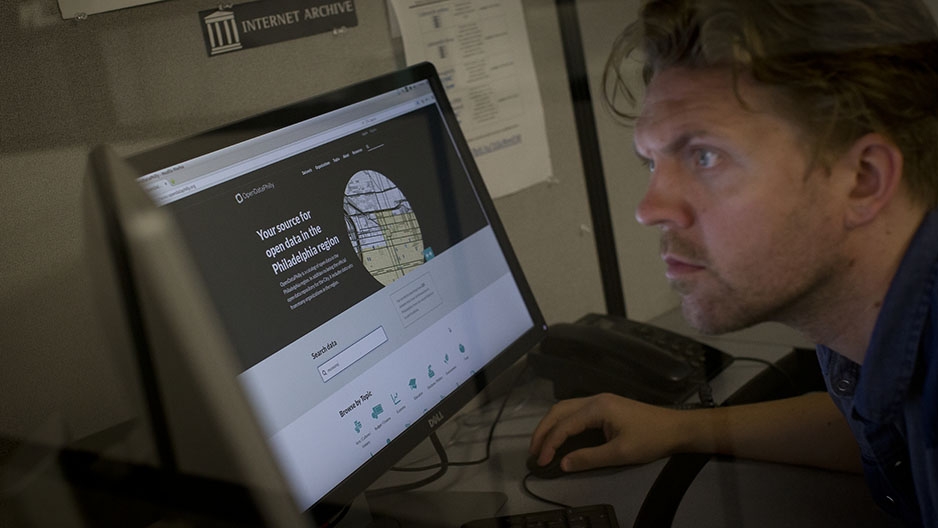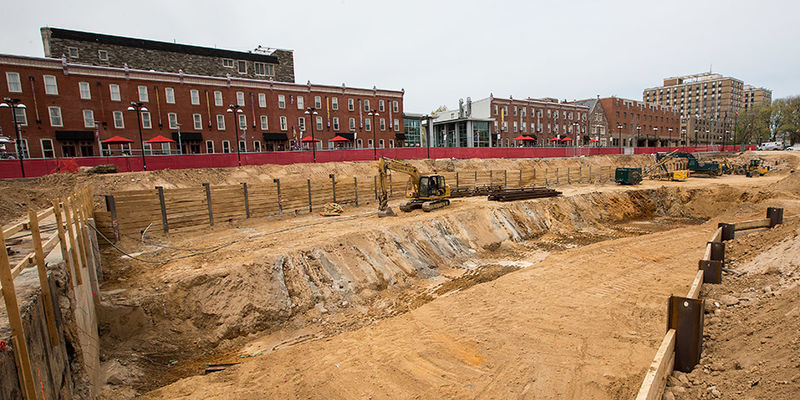Temple University Libraries wins a 2016 Knight News Challenge on Libraries award
The award from Knight Foundation will fund the early planning stages of future-proofing civic data.

Chad Nelson, a senior digital library applications developer for Temple University Libraries, is a big fan of OpenDataPhilly, a community-run information portal of open data about Philadelphia. But sometimes he runs into a problem.
“I often use it when teaching classes on software and mapping tools,” said Nelson. “More than once, I have been halfway through a project and the dataset I was using disappeared.”
Typically, information portals serve as hubs where users can find a wide variety of information all in one place. The common problem with portals though is that links go out of date and disappear. The organizations that host the data are not thinking about long-term preservation. Stability of the data depends on the organization that is providing the data, which most portals currently have no control over.
So how can this disappearing act be prevented? Nelson and Joseph Lucia, dean of Temple University Libraries, want to figure it out. And so does Knight Foundation, which awarded Temple in $35,000 funding as one of 14 winners of the 2016 Knight News Challenge on Libraries to help them find a solution.
Specifically, Nelson and Lucia, in collaboration with OpenDataPhilly, will be investigating how libraries can assist with preservation and long-term access to open civic data through community information portals, so that important data doesn’t seemingly disappear.
OpenDataPhilly, the community portal that Chad Nelson uses in his classes, is dedicated to curating data about Philadelphia city departments, cultural heritage institutions and private and nonprofit organizations.
As the websites curated by OpenDataPhilly grow and evolve, some pieces of information can become outdated, get deleted or change ownership. And when this happens, the data can be lost.
That’s where the library sees an opportunity.
“Temple Libraries has a lot of expertise and experience in archiving, preserving and stewarding digital data, websites and more,” said Nelson. “It seemed like a great opportunity for us to leverage our skills to help preserve this data for the long term.”
Lucia explained that this initiative is an extension of the libraries’ mission to provide the community with access to information.
“Our key commitment is to keep the human record,” said Lucia. “Knowledge should be accessible as a public good, not just as a purchasable commodity.”
While the project is still in the preliminary planning stage, Lucia is confident it will be off the ground toward the end of summer. The first task will be developing relationships with the data providers to see how they can effectively work together to preserve data for users.
Lucia and Nelson anticipate some issues during the launch of the project, such as navigating licenses that could be attached to the data. Despite any hurdles that they might encounter, they’re dedicated to future-proofing open data.
“This data is already being used by journalists, businesses, government and more,” said Nelson. “Having stable access to the data that was used to make decisions or power applications is important.”
Knight Foundation received more than 600 proposals. Temple was one of just 14 institutions awarded grant funding.


